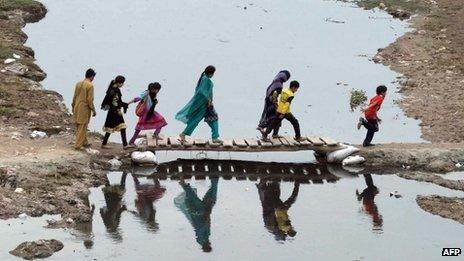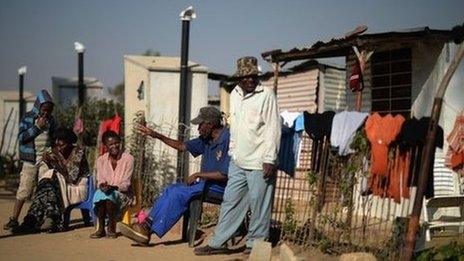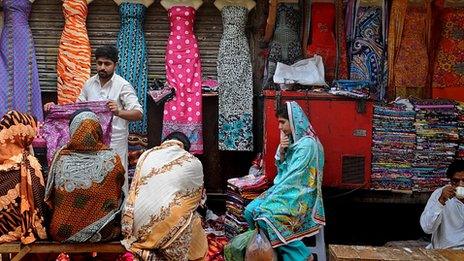UK urged to rethink £400m annual aid budget for Pakistan
- Published

The UK is substantially increasing its funding for education programmes
British aid to Pakistan should be cut and diverted to poorer countries unless there is "clear evidence" it is helping to reduce Islamic extremism, MPs say.
A Commons committee said the UK was still giving large sums of money to a state "that has failed to adequately mobilise the substantial resources of the country to help its poor".
The report comes ahead of a visit by Pakistan PM Nawaz Sharif to Britain.
The government said helping Pakistan was in the UK's national interest.
Pakistan is set to receive £1.17bn in support from the UK between 2011 and 2015, making it one of the largest recipients of bilateral aid.
Annual spending will increase from £215m in 2010-2011 to £405m in 2014-15.
The UK says Pakistan has pressing economic, educational and health problems, with 60 million families below the food poverty line, as well as a large diaspora in the UK and growing trade links.
It argues Pakistan deserves increased support as it is a strategically vital country in the fight against radicalisation and terrorism across the region and elsewhere.
'Root causes'
But the cross-party international development committee said it was "unlikely" expenditure would be so high if the country was not having to confront Islamic extremism.
"If this is the case, the budget can only be justified if there is clear evidence that Department for International Development (Dfid) support is effective in reducing the extremist threat," it said.
"If not, we recommend that Dfid consider reducing spending in Pakistan and increasing it in low income countries."
In the past, the MPs have said aid increases should be held back unless Pakistan's leaders improved tax collection and paid their "fair and proportionate" share.
In response, the Department for International Development said investment in overseas development, including in Pakistan, "created a safer and more prosperous world for the UK".
"Tackling poverty in the world's poorest places can mean tackling the root causes of global problems such as terrorism, which matter to us here in Britain," a spokeswoman said.
"Education is vital to transforming Pakistan's future and is where a significant proportion of our funds are directed. This is firmly in the UK's own national interest."
The UK recently became the first G7 member to meet a UN target of spending 0.7% of national income on development and the committee said other nations now had to follow suit to demonstrate their commitment.
- Published8 January 2014

- Published23 August 2012
